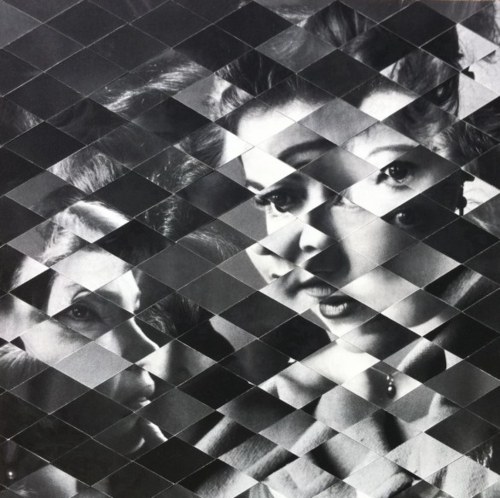As part of my ongoing interest in contemporary pop-sociological takes on the 1960s, I read historian Theodore Roszak's The Making of a Counter Culture (1969). Its patronizing tone ("it is the young who have in their own amateurish, even grotesque way, gotten dissent off the adult drawing">and platitudes about youth's fundamental yearning for spiritual authenticity and not political change makes for tedious and pedantic reading, but it usefully illustrates how the social threats critics saw in technology have shifted.
Like many critics of the period, Roszak was chiefly worried about the "technocracy," the emergence of a totally administered society run by hyperrational engineers and bureaucrats, yielding a de facto planned economy that allows no one any genuine autonomy, impetus, or spontaneity. Roszak derives this from Marcuse, but John Kenneth Galbraith's The New Industrial State seems more like what he has in mind: megacorporations working in tandem with the state to manage growth, impose mass-media-directed social conformity, and nullify dissent or genuinely free expression. His anticipation of the fully integrated industrial state in which totalized organization becomes an end in itself leads him to make some ludicrous statements about capitalism, like this one: "in our society, profit taking no longer holds its primacy as an evidence of organizational success." If that was ever the case, it certainly isn't now; neoliberal reform put profit and risk management back at the heart of the capitalist society, such that even charities are supposed to be run like a business.
Neoliberalism reshaped the contours of that sort of "total system" — industrial policy was felled by globalization, as was the truce between labor and capital. Precarity replaced full employment as a guiding ideological principle for economic policy. Roszak's view that economic security could be "taken for granted" by 1960s youth, thereby freeing them to fight for a more spiritually fulfilling society, seems especially dated. His diagnosis that the period of adolescence is being perpetually prolonged seems correct, but this is not because they are "infantilized" by abundance and ease and tolerant, "pampering" parents, as he suggests. Instead, prolonged adolescence reflects how consumption (adolescence's chief concern) has become economically productive.
Part of the "postindustrial" emphasis on logistical flexibility and just-in-time production is that the consumer goods market became capable of accommodating a superficial diversity of products, meaning there was a "creative" opportunity for consumers to feed into the customization of goods, which could be relied upon to confer ersatz uniqueness on the consumer.
Deleuze's essay about the control society gives a good overview of the effect on subjectivity this shift from the "new industrial state" to neoliberalism has had — basically he extends of the implications of Marcuse's "repressive tolerance" and combines them with Foucault's notion of "governmentality." The cybernetic systems don't make subjects into robotic seeming automatons in control societies; it makes subjects into "dividuals" whose every move is monitored in observatory networks to capture their "innovative" deviations. Control societies impose flexibility rather than conformity, and make creative adaptation on the part of the individual a mandatory requirement. (Be an entrepreneur! Yay!) You are still a cog in the machine, but a self-designed one.
Roszak's fear of what he calls "objective consciousness" — a sort of technologically minded narrowness that eradicates the humanist pleasures of culture — thus seems misplaced. We haven't been "depersonalized" but hyperpersonalized by the ways technology has abetted consumerism. So his concerns about people becoming automatons in the following passage, an elaboration on a quote from Jacques Ellul about how technological expert systems are "converging" on the human subject, seem a little misplaced, misdiagnosed:
The final convergence [Ellul] predicts may not have to postpone its completion until the technocracy has acquired mechanisms and techniques that will replace the human being in all areas of our culture. Instead, we may only have to wait until our fellow humans have converted themselves into purely impersonal automatons capable of total objectivity in all their tasks. At that point, when the mechanistic imperative has been successfully internalized as the prevailing life style of our society, we shall find ourselves moving through a world of perfected bureaucrats, managers, operations analysts, and social engineers who will be indistinguishable from the cybernated systems they assist.
This prediction misses the possibility that the cybernated system might demand not conformity but constant innovation within constrained categories — the mechanistic imperative could be: CREATE! Creativity in personal expression is not immune to being bureaucratized. That is what identity-driven social media are about. Social media's compulsivity is the "successful internalization" of the "mechanistic imperative" as the "prevailing life style of our society." The passage continues:
Already we find these images of internally deadened human beings appearing in our contemporary novels and films. Dispassionate lovers, dispassionate killers fill the movies of Godard, Truffaut, Antonioni, Fellini with their blank gaze and automatized reactions. So too in the absurdist plays of Harold Pinter and Samuel Beckett we find the logical—or rather psychological—conclusion of life dominated by ruthless depersonalization.
The sense that we are internally dead has taken a new form. The new fear is not that people will be all the exact same "blank" dispassionate drone — people's identities are more variegated and articulated than ever — but that they will become indistinguishable from their social-media profiles, the mark of a systematized personality. The inner life is barren not because systems thinking has rendered it predictable but because social media have sucked it all out and externalized it.
Here we have the world of completely objectified human relations: people hopelessly locked off from one another, maneuvering their isolated In-Heres around and about each other, communicating only by their externalized behavior. Words become mere sounds, concealing more than they convey; gestures become mere physiological twitches; bodies touch without warmth. Each In-Here confronts the others Out-There with indifference, callousness, exploitive intention. Everyone has become a specimen under the other's microscope; no one can any longer be sure that anyone else is not perhaps a robot.
Roszak's prediction of a Blade Runner world where sociality is reduced to our administering Turing Tests on one another seems a bit off, in part because that robotic affect of objective dispassion did not come to pass. But what is social media if not an ongoing effort to prove our humanity to everyone? To prove we exist? The "world of completely objectified human relations" that Roscak feared has established itself, not through deadening
Borg-like integration into a homogeneous machine but as the overlay of voluntarily adopted social media over everyday life. Roszak's description of "people hopelessly locked off from one another" seems the precise opposite of the universe of ubiquitous connectivity we live with, but this connectivity makes the isolation more complete, positioning individuals as networked nodes who link with others without being capable of forming any kind of collective subject.On Facebook "everyone has become a specimen under the other's microscope," and the Horse e-books fiasco suggests that we are more than ready to mistake bots for humans and vice versa. The "automized reactions" Roszak anticipated have come to pass, but the quasi-rational scripts we unthinkingly enact appear to us to be our taking advantage of mechanisms provided to us to assure our freedom of expression. Compulsive sharing in social media is a kind of automized reaction that seems more like autonomous expression, regardless of how constricting the facilitating platform might be.
But it's probably misleading to talk about what is "robotic" about our social media behavior. It makes more sense to describe what Roszak calls robotic as "calculating." Social media confront users with a lot of apparent evidence of everyone else's strategizing and social positioning — their "exploitive intention." On social media, users are certainly "communicating only by their externalized behavior" — indeed the sites propose that all of identity must be externalized in order to be authentic. By instrumentalizing tokens of identity so thoroughly, social media deny the relevance of other people's interiority, making that interiority seem somewhat implausible. Why would you think something you couldn't use? Who among us is deeper than the complexities and contradictions they have layered into their social-media presences?
One's "depth" is in the externalized text about the self, not in some inexpressible strata of the psyche. But the interpretive tools used to chart this depth depend on the tenets of economistic rationality: a matter of decoding incentives, tracing the attempts to network effectively and claim various forms of authority, make the case for one's cultural relevance, etc. It becomes harder to imagine we won't be able to figure out someone else's "real" motives by sifting through all the social-media clues; it becomes harder to respect the possibility of mystery inhering in some ineffable consciousness within.
As was pointed out by many commentators, people enjoyed the fantasy that the Horse ebooks account was driven by an algorithm and not by human intentionality, which gave them a break from the hermeneutical demands that social media consumption ordinarily imposes on users. You could suspend the need to figure out Horse e-books's motives for posting and claim any intentionality you saw in it for yourself. In that way, we remain the only relevant acting subject, as Michael Barthel noted here.
Whereas when we are dealing with everyone else's posts on social media, we have to expend considerable effort figuring out what their angle is in posting it, what kind of audience they want us to be, and whether we are going to react as they intended, grant them the social and/or cultural capital we have to assume they are looking for. A bot can seem truly "authentic" in our current climate because it is by definition incapable of having a covert motive; it is as disinterested as any Kantian could hope for.
We didn't just want Horse ebooks to be a bot; we secretly want everyone else on social media to be bots.
When we examine each other on social media, we are not afraid to discover the other is a bot; we're continually hoping for it. If the other proves to be a robot, we have no "infinite responsibility" toward it; instead we can just assimilate to our own personal identity strategies. Roszak's mistake is in assuming that people would be generally dismayed at the prospect of being "hopeless locked off from one another" rather than feeling empowered by it.

